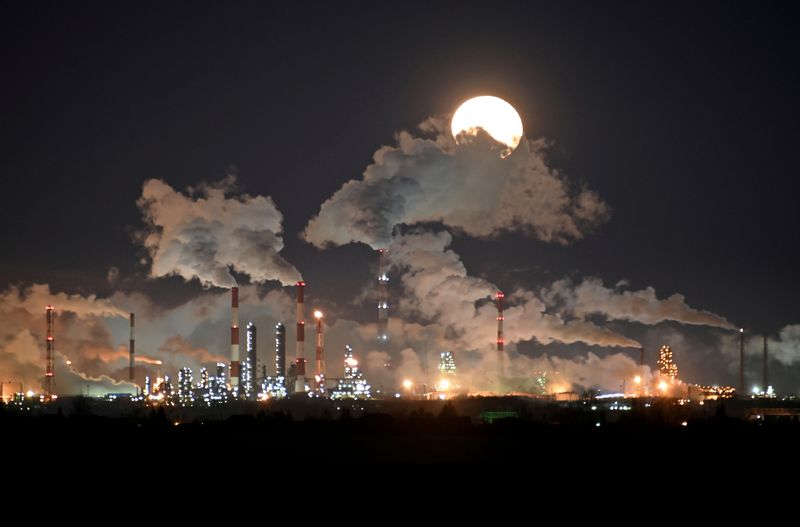By Vladimir Soldatkin and Olesya Astakhova
MOSCOW (Reuters) - Higher taxes imposed on Russia's energy sector could make prolonged output curbs by OPEC and allied producers easier to stomach for Moscow's energy majors.
The new system of taxes, approved by President Vladimir Putin earlier this month to help Russia weather the economic fallout from the COVID-19 pandemic, make it more expensive for energy companies to boost production from mature oil fields and produce more heavy crude.
That could make Russia's energy sector more willing to accept tighter policies from the Organization of the Petroleum Exporting Countries (OPEC) and its allies, known as OPEC+, rather than engaging in a tussle with other oil-producing countries such as Saudi Arabia over oil market share, analysts say.
OPEC+, of which Russia is a member, has been reducing oil output to the tune of 7.7 million barrels per day, or over 8.5% of global consumption, in order to help the sluggish oil market.
"I think that the tax changes in oil industry were worked out while taking into account the OPEC+ deal and its influence on the output of the Russian companies," said Karen Kostanyan of Bank of America (NYSE:BAC) Merrill Lynch.
The tax reforms are complex and vary from region and the types of oil pumped. Crucially, they scrap some tax breaks given to output from older oil fields and on highly viscous oil, used for production of a wide range of oil products.
Renaissance Capital estimated that in total, the finance ministry plans to source 6 trillion roubles (60 billion pounds) in tax revenues from the oil and gas sector in 2021, or 32% of its total 2021 budget revenues under a Urals oil price assumption of $45.3 per barrel.
Russian Energy Minister Alexander Novak said last month that the taxation and the way Russia sticks to the OPEC+ deal are in "different areas".
But the financial incentive to pump less could make for smoother discussions with Russia's energy giants over continuing to keep a lid on production to support the market, analysts say.
OPEC+ was planning to start raising output in January but concerns a second wave of the COVID-19 pandemic will hobble demand could see that plan jettisoned.
Last week, Putin did not rule out extending oil cuts if market conditions warranted.
While Putin is the ultimate decision maker in the country, including in the oil industry, Novak has had to hold regular meetings with oil majors such as Rosneft and Lukoil to agree joint action before any significant deals can be done with OPEC.
Igor Sechin, the head of Rosneft, has long opposed output cuts in tandem with OPEC but has been overruled by the president.
Rosneft and Lukoil did not respond to a request for comment.
Russia's finance ministry told Reuters that the tax changes "should not result in oil output cuts long-term, provided that the companies continue investments".
Russia has also worked out a plan to build unfinished wells to make them operational and restore production quickly once the OPEC+ deal expires after April 2022.
Mid-sized oil producer Tatneft said last week that it doesn't plan to start output at new highly viscous oil fields due to the new tax regime.
The changes affect companies such as Tatneft, Lukoil and Gazprom (MCX:GAZP) Neft the most because they produce such heavy crude oil.
Rosneft, on the other hand, managed to secure some tax breaks by promising the state more revenues in exchange for less taxes.
Artem Frolov, vice-president at Moody's, believes the changes will ultimately mean only a moderate earnings hit for the oil majors.
"These changes are unlikely to impact the position of energy ministry, which represents Russia at the (OPEC) talks," he said.
